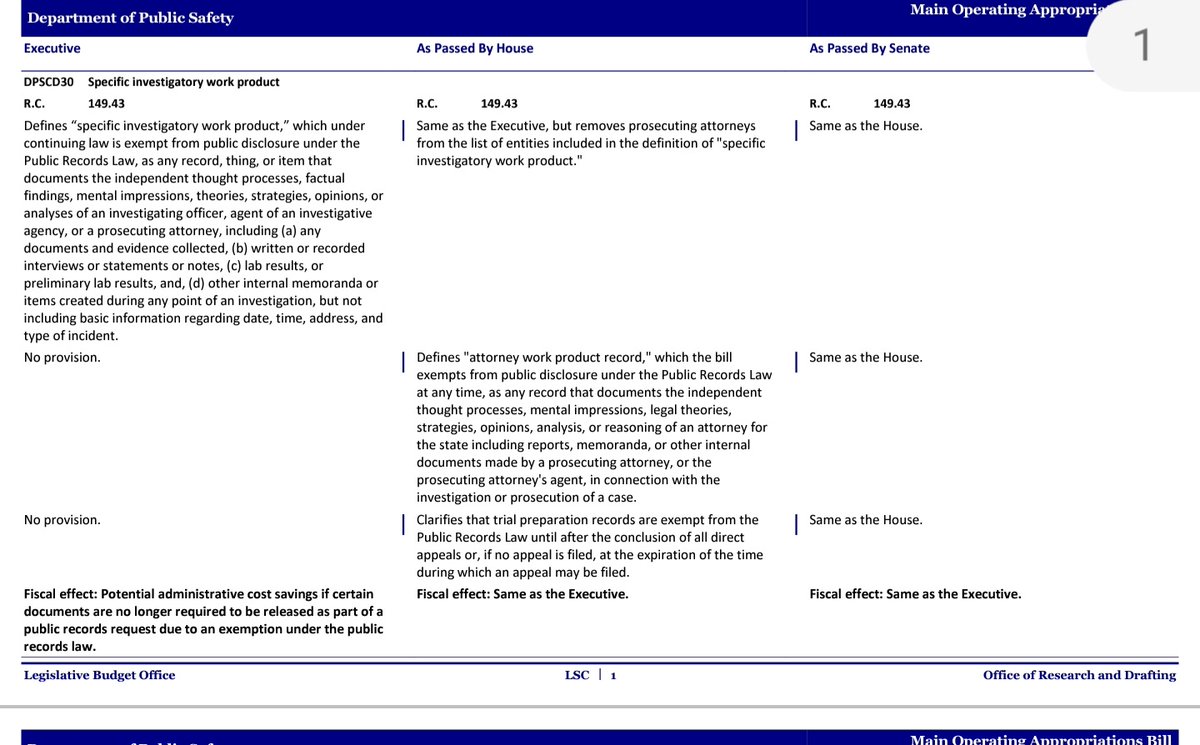Yesterday, a terrible public records/policing provision was snuck into HB 315, the final bill passed by Ohio legislators before this legislative session ended. Because it was snuck in, that means there were zero hearings, testimony, etc. against it or about this. 1/7
This language allows (but does not require) Ohio law enforcement to charge people up to $75/hr, and up to $750 total, for the retrieval, redacting, uploading, producing, etc. of video records. Of course, this includes body cam & dash cam videos. 2/7
So, imagine a controversial police shooting. Advocates, news media & others are interested in what a police body cam(s) or dash cam(s) reveal about the situation & what may have led to the shooting. But first, they may be required to first pay hundreds of dollars. 3/7
Now imagine there were multiple officers on the scene i.e. multiple cameras, multiple videos. That means even more money a requestor will have to pay, perhaps up front, before getting access to "public" records. This is a terrible blow for govt transparency & accountability. 4/7
This will be cost prohibitive for many local, grassroots (& other) orgs who work on policing issues. Of course, that is the whole point of this language. Naturally, this also applies to family members of those shot and/or killed who want copies of these videos to learn more. 5/7
If there is any area/aspect of govt authority most deserving of transparency, it is policing. Govt should not have the authority to shoot, injure, kill, etc. us then hide behind cynical laws making these incidents far more secret than they already were before yesterday. 6/7
Again, this happened with zero notice. No legislative hearings. No testimony. That is 100% on purpose. The legislator(s) ultimately responsible for this addition to HB 315 remain unknown outside the Statehouse. What we do know is they hate the public's right to know. 7/7
• • •
Missing some Tweet in this thread? You can try to
force a refresh






